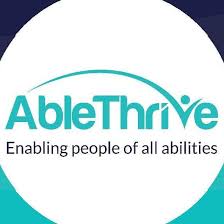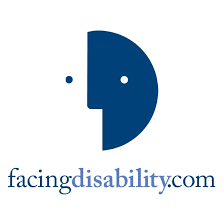|
Back at Harvard for the start of Beth’s junior year, I carried her chair and other items up from the basement storage room. I set up her dorm room before I drove back to Tiffin. She changed her concentration from biology to health care policy with the goal of attending law school. Beth told a reporter about her DC summer and why she changed her major.
“I really fell in love with the policy side of things. After the internship, there was an opening in Senator Kerry’s Boston office to work specifically on disability issues with one of his staffers. They invited me to do that. So, throughout my entire school year I worked in his Boston office. It’s completely different, because it’s much more focused on his constituents. But I really loved that, because you get to talk to people on an individual basis.” Beth rode the T by herself from Harvard Square to the Senator’s office near the Massachusetts State House. One day a week, sometimes two. She stayed on the subway and passed the T stop closest to the Senator’s office to avoid a steep hill. She planned for extra time to wheel the additional distance back to the office, avoiding the inaccessible T stops. She signed up for text alerts to get advance notice when elevators broke down. “When I answered phone calls, I recognized a desperation in their voices as they reached out to their Senator, who was all too often their last hope in solving their issues,” Beth said. “It was rewarding to resolve specific disability-related complaints, but some we could not help.” She stayed in touch with Mary in the DC office and joined the Senator and staff for events, including a campaign rally at Boston’s Faneuil Hall for Deval Patrick, soon-to-be Governor of Massachusetts. Coffee, Beth’s new habit, stoked long days of classes and homework, swim practice and meets, plus volunteering for KSNAP and Senator Kerry. Beth’s new major allowed her to create and follow an individualized program. She selected classes relating to health care, a wide field of study including economics, regulations, inequalities, public opinion, politics, quality control, and buzzwords like adverse selection and moral hazard. She looked forward to classes at two graduate schools. “I explored health care policy and disability issues with courses at Harvard’s Kennedy School and Law School.” They were her favorite classes. Next: A Big Decision!
6 Comments
Beth’s day on the Senate floor during the stem cell debate included conversations with Senator Ted Kennedy and others. She loved every minute.
“If you ever need to be reminded of why it's morally right to lift the ban on stem cell research, just listen to Beth,” Senator John Kerry said. “She's more eloquent on this subject than any lobbyist or member of Congress.” When Senator Kerry spoke at the podium on the Senate floor to his colleagues, he introduced Beth and shared her story. He said she served as a “silent, powerful reminder of what is at stake here.” He also signed the paper copy of his speech for her to keep. Newspapers covered Beth’s story in Boston, Toledo, Tiffin, and Washington, DC. John collected them all. “As her Dad, I’m just intensely proud of her,” John said. “She’s a courageous young lady. How many 20-year-olds spent the day on the floor of the U.S. Senate tracking an issue that’s so important to them?” The Boston Globe printed my quote: “She’s not someone who is focused on the cure. She’s very much living her life today. We’re all hoping that stem cell research will offer her more options in the future, but in the meantime, she’s making the most of everything she has.” The Senate passed the stem cell bill with the support of Nancy Reagan and other Republicans. Regardless, President George W. Bush vetoed it the next day, benching the issue for three years until the next president ended the federal limits on stem cell research. Research undoubtedly paved the way for significant improvements in treating many conditions. However, a complete cure for the unlucky quads (like Beth) with a cut spinal cord in the neck AND an old injury? Not likely in my lifetime. We followed Laraine’s advice to not be the first in line for a cure. We knew people who paid a fortune for stem cell treatments in other countries, with little or no results. I thought it best that Beth’s heart wasn’t set on walking again. Even so, I hoped stem cells would make her life easier one day. Next: San Antonio! Washington, DC was unfamiliar to Beth during her first extended stay as a summer intern. One day, she wheeled through an unfamiliar part of the city to meet a friend for dinner. Approaching an overpass by herself, armed only with her gift for minimizing obstacles, Beth increased her speed. She made it halfway up the hill to an even steeper incline. With no tilt guards to prevent the wheelchair from tipping backward, she leaned forward, turned the big wheels toward the road at a 90º angle, and stopped. She wore wheelchair gloves with her fingers exposed for a better grip.
If she reversed her course to go back down the hill, she’d burn her fingers on the big wheels trying to slow her speed and might lose control of the wheelchair. Going up the hill the rest of the way wasn’t a good option, especially without a “running” start. The overpass had two lanes of traffic in each direction, with no parking lane, bike path, or extra space for a car to pull over. Beth decided to go back down the hill and find a subway stop, when a young man stopped his car right in the lane next to her. He put on his flashers, and quickly pushed her up the hill. She realized he was deaf when she thanked him. After dinner, she avoided the overpass by taking the Metro home. Over the July 4th weekend, I drove eight hours with John and Maria from Ohio to Washington, DC, to visit Beth. I bought tickets for a play at the Kennedy Center for the first time. My girls and I loved the musical, Little Women. For the July 4th parade, we congregated by a curb on Constitution Avenue in blistering heat. Beth and I took a break in air conditioning at the Smithsonian American History Museum nearby. Many ethnic groups danced in vibrant costumes. Notably missing? The county fair royalty, tractors, and other farm equipment in Tiffin parades. Senator Kerry’s office manager arranged for Beth to sit next to him at the intern luncheon. Meeting him for the first time, my daughter asked him about the upcoming Senate vote to allow federal funding for new stem cell lines. “I asked him if I could be on the (Senate) floor with him,” Beth told The Boston Globe. “I hope that as the senators are voting they can see a face that reminds them of what they’re actually voting for.” “As a person in the disability community,” Beth continued, “I’ve met so many people whose main goal is just to get better, and stem cell research is their one opportunity to find a cure.” When Beth told me on the phone about her big ask, I realized that the shy, quiet girl she’d been before her injury had been left behind, for good. Senator Kerry not only agreed to her request, he decided to include Beth in his stem cell speech. He requested and received special permission for “privileges of the floor” so she could join him in the Senate on July 18th. Next: An Amazing Day! As Beth wheeled forward, she paid attention to opportunities, many of them fortunate accidents of one kind or another. Through NYLN, she applied for a Congressional Intern Grant through the American Association of People with Disabilities (AAPD) and the Mitsubishi Electric America Foundation. The grant covered summer housing in Washington, DC, avoiding a huge expense. Next, she submitted intern applications to congressional offices.
“I was accepted into Senator John Kerry’s office first, so I jumped on that,” Beth said. “I was so excited because I respect him.” As summer began, I shopped with her for dress clothes and a professional-looking bag for the back of her wheelchair. I helped Beth move into an accessible dorm at George Washington University. The AAPD interns shared dorm suites on the same floor. Beth toured museums and monuments with her two roommates. She connected with the other interns as well as the hustle of big city life. “It was a life-changing experience. The disability community is so active in DC.” The Metro subway, newer than Boston’s T, carried Beth to Capitol Hill every weekday. She reluctantly conceded to the occasional push from strangers as she wheeled up the hill from the subway to the Capitol, especially on wet sidewalks. She worked on disability and health care issues at a desk right next to the Senator’s friendly office manager Mary. "We had installed handicapped door openers and Beth never used them," Mary said. "She has an unbelievable attitude and is sweet as can be. Nothing will stop her.” It also was Beth’s fifth swimming summer: still training year round on the US Paralympic National Swim Team and with the Harvard Women’s Swimming and Diving team through the fall/winter seasons. Beth frequented a crowded YMCA pool in DC after work. One evening on the way back to the GW dorm in pouring rain, she bypassed the subway elevator she needed because of a too-friendly homeless man. Beth wheeled several more blocks in the storm to the next Metro stop. Next: A BIG Ask! |
Cindy KolbeSign up for my Just Keep Swimming Newsletter by typing your email address in the box. Thanks!Categories
All
Archives
November 2022
|

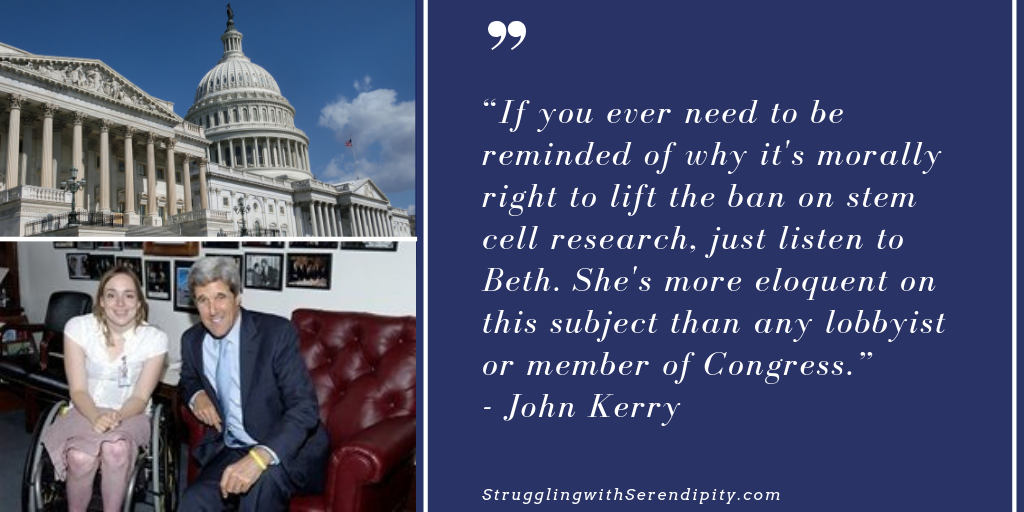
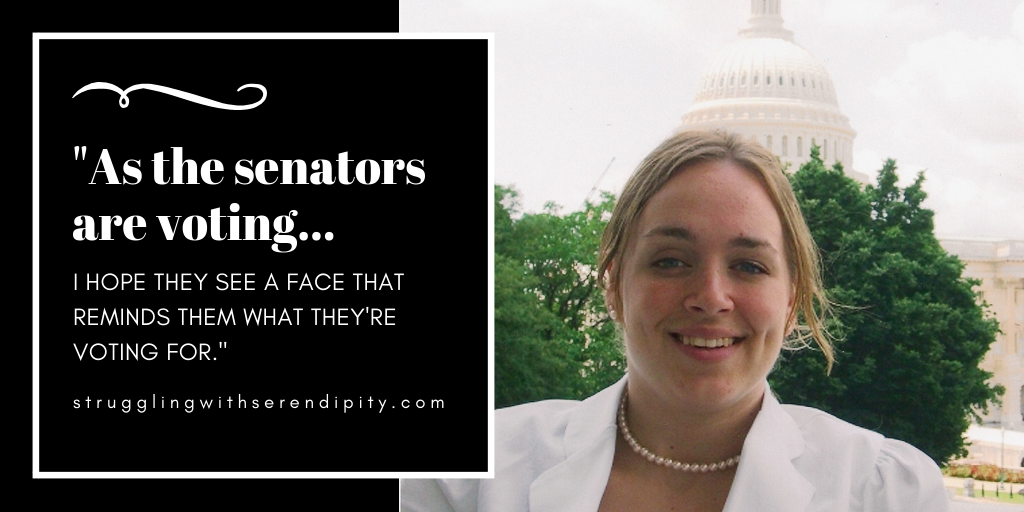
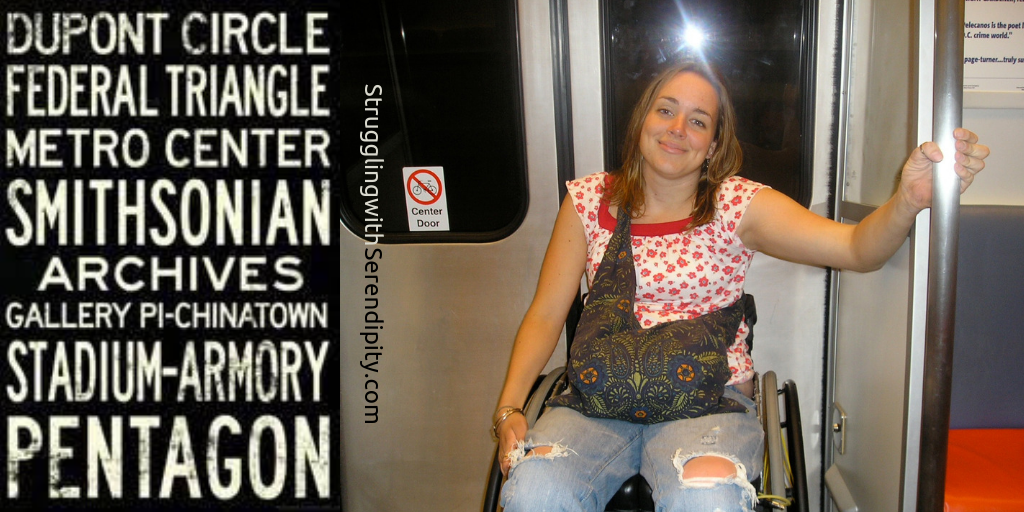

 RSS Feed
RSS Feed





